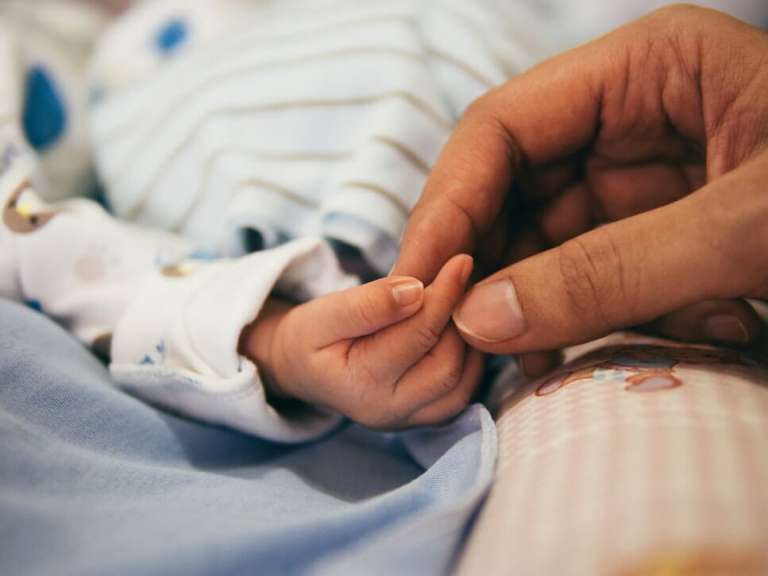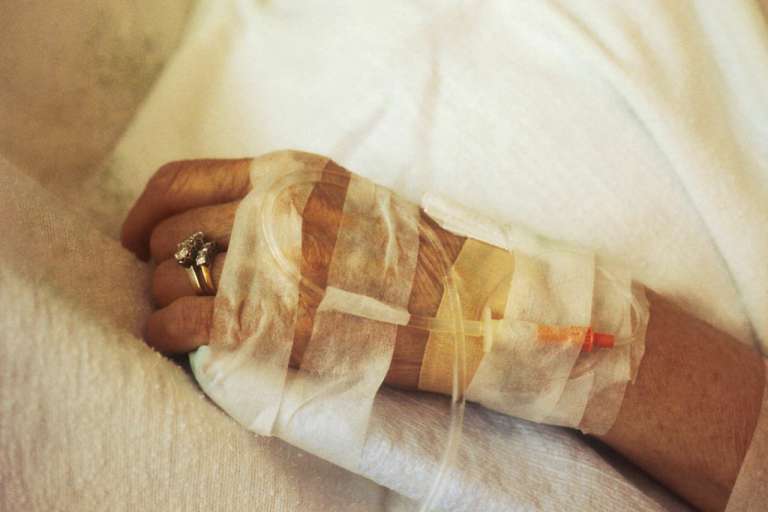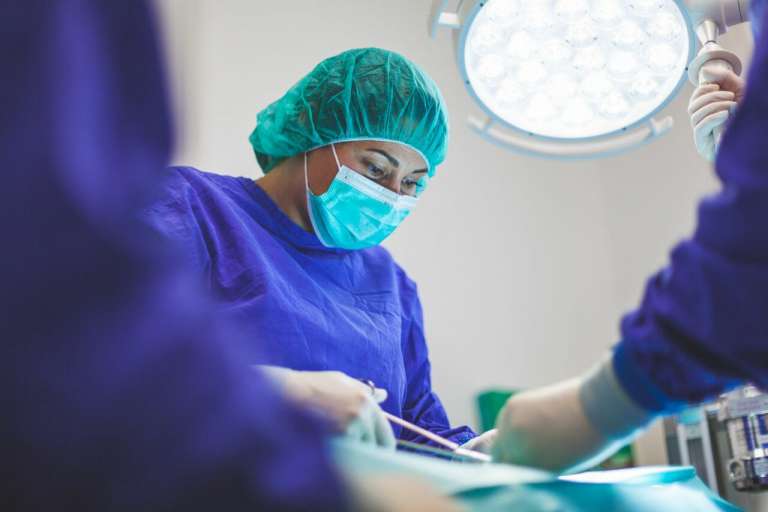A report on the review into the use of medicines and medical devices was published today. Many patients and families had raised concerns about the hormone pregnancy test Primodos, the anti-epileptic drug sodium valproate and pelvic mesh. Jeremy Hunt, who was the Secretary of State for Health and Social Care, therefore called a review.
Baroness Julia Cumberlege chaired the review which considered a range of matters. But primarily looked at any further action necessary relating to the complaints around Primodos, sodium valproate and surgical mesh.
Primodos
Women were given Primodos in the UK in the 1960s and 1970s. It was an oral hormone based pregnancy test. GPs would give women two pills to take on consecutive days. They contained high levels of synthetic progestin and oestrogen hormones. The pills were supposed to induce menstruation if a women was not pregnant. If she was pregnant, her pregnancy was supposed to continue as normal. However, it was thought to be responsible for birth defects and miscarriages. Primodos was therefore discontinued in 1978.
Sodium Valproate
Sodium valproate is a drug used to treat epilepsy and bipolar disorder (and occasionally to prevent migraines). According to the Epilepsy Society, 7% of women prescribed sodium valproate have a baby born with a major malformation and up to 40% of children have problems with development and learning. Warnings were therefore introduced in 2016 for women not to take it if they are or are planning to get pregnant. However, in 2017, according to the BBC, 70% of women taking sodium valproate were not advised of the risks to unborn babies.
Pelvic Mesh
Surgical mesh is a net-like implant used to support organs either temporarily or permanently. Stress urinary incontinence (SUI) and pelvic organ prolapse (POP) is treated using pelvic mesh or transvaginal tape (TVT). Surgeons would use the mesh to reinforce a weakened vaginal wall or support the urethra or bladder neck. However, many patients reported crippling, lifechanging complications. So much so, that they are now looking to go through the complicated procedure of removing the mesh.
The Review
The review traveled across the UK to listen to hundreds of affected patients and their families. It considered evidence from many groups representing individuals who were responsible for the administration of or had suffered harm from Primodos, sodium valproate and pelvic mesh:
- Patient groups
- Clinicians, academics and other individuals
- Professional and trade bodies
- Manufacturers
- Regulators
The Report
On the publication today, Baroness Julia Cumberlege said; “We have seen NHS staff rise to the enormous challenge posted by the Covid-19 pandemic and we applaud them for their amazing commitment. I’m afraid, however, that our report makes for uncomfortable reading, including for the hard-working, compassionate people who do excellent work in our health service.
“I have conducted many reviews and inquiries over the years, but I have never encountered anything like this; the intensity of suffering experienced by so many families, and the fact that they have endured it for decades. Much of this suffering was entirely avoidable, caused and compounded by failings in the health system itself.
“The first duty of any health system is to do no harm to those in its care; but I am sorry to say that in too many cases concerning Primodos, sodium valproate and pelvic mesh, our system has failed in its responsibilities. We met with people, more often than not women, whose worlds have been turned upside down, their whole lives, and often their children’s lives, shaped by the pain, anguish and guilt they feel as the result of Primodos, sodium valproate or pelvic mesh. It has been a shocking and truly heart-rending experience. We owe it to the victims of these failings, and to thousands of future patients, to do better.”
Because of this suffering, the report’s title is “First Do No Harm” as a reminder to doctors and the whole healthcare system. To urge the system to put in place the processes that will enable it to learn from past mistakes.
The Review Findings
Baroness Julia Cumberlege wrote to the Secretary of State outlining that the whole system was “disjointed, siloed, unresponsive and defensive.” Therefore, one of her primary recommendations is to appoint an independent Patient Safety Commissioner, this person would be responsible for listening to patients, identifying trends in practice and outcomes that point to safety concerns.
As medical negligence solicitors, people point to us as villains who steal money from the NHS. But many of our clients actually come to us because they are missing the whole truth. This review substantiates this theory. It found that patients weren’t aware of who to complain to or even how. Then faced dismissive and unhelpful attitudes if they complained. Even once the risks were identified, they were slow to act and “too often moved glacially”.
We mustn’t forget that these drugs and devices have spanned decades. Primodos was first used in the 1960s. Why has it taken until 2020 to give some of these families the answers they have been looking for?
Monitoring
The review found that the monitoring and recording of the use of the medicines and medical devices is not robust enough. This therefore means that the scale of the issues is still very much unknown. It is impossible to know how many mothers were given sodium valproate or Primodos whilst pregnant.
They concluded that “the system is not safe enough for those taking medications in pregnancy or being treated using new devices or techniques” without the right monitoring and testing in place.
Patient Consent
The review also raised the issue of patient consent. Concluding that patients are not listened to enough, or given enough information to allow them to make key decisions about their own treatment. We often see this in medical negligence claims, where our clients just simply don’t know enough to make an informed decision about what happens to them. Some of our clients aren’t told about a change in procedure or treatment until they are on their way to the theatre. Or the clinician might hand them a sub-standard leaflet, with no opportunity to ask questions or raise concerns.
The report outlines some overwhelming feedback from the patients and their families. These families have been suffering for years. Feeling ignored and not listened to. Feeling kept in the dark and missing key information. This led to poor decisions in their treatment, which they now feel guilty about as they live with the long-term consequences of the mistakes made. They now, rightly so, want justice.
The Review Recommendations
The review recommendations are:
- The Government immediately apologises on behalf of the healthcare system to the families affected by Primodos, sodium valproate and pelvic mesh.
- Appoint a Patient Safety Commissioner to listen to and advocate for patients, monitoring trends and demands action.
- Establish a new independent Redress Agency for those harmed by medicines and medical devices.
- Set up separate schemes for each intervention to meet the cost of providing additional care and support.
- Set up two types of specialist centres, located regionally to provide comprehensive treatment, care and advice for those affected by implanted mesh; and separately for those affected by medications taken during pregnancy.
- MHRA – the regulator of medicines, needs to put patients at the heart of its activity and to overhaul the adverse event reporting and medical device regulation.
- Create a central database to collect key details including the patient, the implanted device and the surgeon.
- Expand the General Medical Council (GMC) register to include a list of financial and non-pecuniary interests for all doctors and their clinical interests and specialisms.
- The Government set up a task force to implement the Review’s recommendations.
Have you suffered harm due to the use of pelvic mesh, Primodos or sodium valproate?
If you have suffered harm due to pelvic mesh or defective impants or other gynaecological errors speak to our experts to find out how we can help you make a no win no fee claim.





